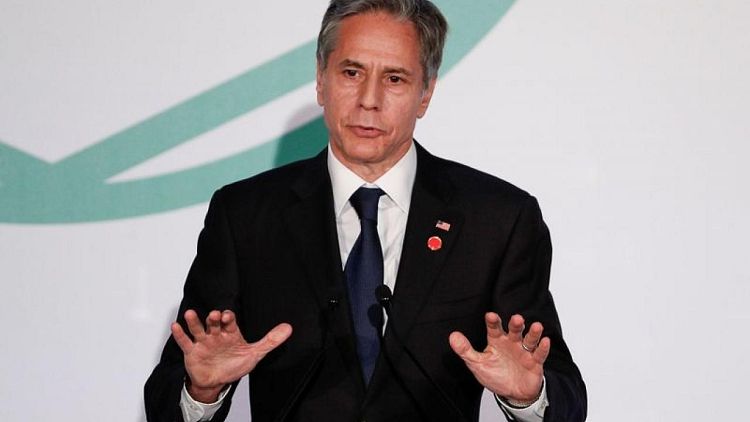By Phil Stewart
WASHINGTON -The United States on Monday strongly defended weekend strikes against Iran-aligned militias but the fighters vowed revenge and both Iraq and Syria condemned the unilateral U.S. air strikes as violations of their sovereignty.
The U.S. military said it targeted operational and weapons storage facilities at two locations in Syria and one in Iraq in response to drone attacks by the militia against U.S. personnel and facilities in Iraq.
"We took necessary, appropriate, deliberate action that is designed to limit the risk of escalation, but also to send a clear and unambiguous deterrent message," U.S. Secretary of State Antony Blinken told reporters in Rome.
Iraqi militia groups aligned with Iran in a statement named four members of the Kataib Sayyed al-Shuhada faction they said were killed in the attack on the Syria-Iraq border. They vowed to retaliate.
Iraq's government, wary of getting dragged into a U.S.-Iran conflict, condemned the strikes on its territory and said it would "study all legal options" to prevent such action being repeated. Syria called the strikes a "flagrant violation of the sanctity of Syrian and Iraqi lands."
Iraq's military issued a condemnation of the U.S. strikes. The Iraqi and U.S. militaries coordinate closely in a separate battle in Iraq, fighting remnants of the Sunni extremist group Islamic State.
It was the second time President Joe Biden had ordered retaliatory strikes against Iran-backed militia since taking office five months ago. He ordered limited strikes in Syria in February, that time in response to rocket attacks in Iraq.
Two U.S. officials, speaking to Reuters on condition of anonymity, said Iran-backed militias carried out at least five drone attacks against facilities used by U.S. and coalition personnel in Iraq since April.
Biden's administration has been looking to potentially revive a 2015 nuclear deal with Iran. The attacks underscore how Biden aims to compartmentalize such defensive strikes, while simultaneously engaging Tehran in diplomacy.
Biden's critics say Iran cannot be trusted and point to the drone attacks as further evidence that Iran and its proxies will never accept a U.S. military presence in Iraq or Syria.
Iran called on the United States to avoid "creating crisis" in the region.
"Certainly what the United States is doing is disrupting security in the region, and one of the victims of this disruption will be the United States," Iranian Foreign Ministry spokesman Saeed Khatibzadeh said on Monday.
Biden declined comment on the strikes in their aftermath on Sunday. But on Monday, he will meet Israel's outgoing president, Reuven Rivlin, at the White House for a broad discussion that will include Iran and U.S. efforts to re-enter the Iran nuclear deal. Those efforts have raised serious concerns in Israel, Iran's arch-foe.
In Rome on Sunday, new Israeli Foreign Minister Yair Lapid told Blinken of Israel's reservations about the Iran nuclear deal being put together in Vienna while pledging to fix "the mistakes made" in U.S.-Israeli relations in recent years.


